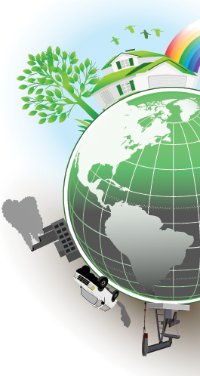The Age of Fossil Fuels Spirals Into Its Endgame — But What’s Next?
I’m so glad I finally got around to Jeremy Rifkin’s masterpiece “The Third Industrial Revolution.” The central concept is this: we’re entering the point in human history where the first and second industrial revolutions and their unintended consequences (i.e., running out of oil and befouling the environment) have forced our civilization to make a great change in course. And it’s good news; in particular, this shift will take us in the direction of clean energy, generated and sold laterally, i.e., peer-to-peer, as millions of us generate our own energy.
Those who may have participated in our recent discussion of the major modes in which mankind can move forward given these constraints (Plans A, B, and C), will recognize this as “Plan B.”
This concept of a lateral economy was inspired by the success of the Internet, where hundreds of millions of individual entities found a kind of power that never existed previously. Apparently, a great number of thinkers today believe that this can represent a seismic shift in the coming few decades. Some even point out that the new economic model doesn’t need to be as predatory as the one it will replace, that the “greed is good” is proving untrue and unworkable, and that sharing and cooperation, which are part of our DNA, can play important roles in how we get along with one another.
If this sounds more like a hippie love-in than the ideas of a Ph.D. with 18 best-selling books to his credit, you may want to check it out for yourself.

